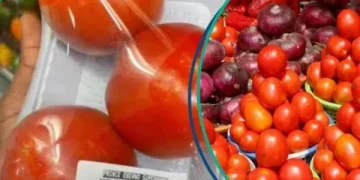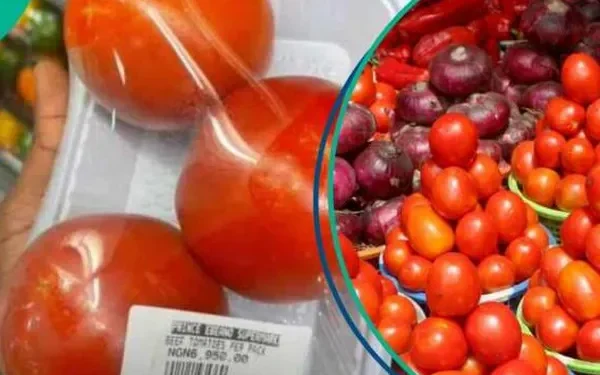Abuja’s Ebeano Supermarket Under Fire for Excessive Tomato and Pepper Prices Due to “Tomato Ebola” Outbreak
In recent weeks, Ebeano Supermarket in Abuja, Nigeria, has come under intense scrutiny for its drastic price increase on tomatoes and peppers. This controversy highlights the broader agricultural challenges currently facing Nigeria, including a severe scarcity of these essential commodities caused by a widespread disease outbreak.
The Pricing Controversy: A Closer Look at Ebeano Supermarket’s Decision
Ebeano Supermarket’s recent pricing strategy has sparked outrage among consumers and on social media platforms. The supermarket has been criticized for charging N6,950 (€4.87) for just three tomatoes. This significant markup has drawn attention to the broader issue of food price inflation, exacerbated by the current agricultural crisis in Northern Nigeria.
Understanding the Factors Behind the Price Surge
- Disease Outbreak: Tomato Ebola Crisis The primary driver behind the tomato and pepper price surge is the ongoing “Tomato Ebola” outbreak. This disease, caused by a combination of pests and pathogens, has devastated tomato farms across Northern Nigeria. The outbreak, which has been described as a “pestilence,” has led to a substantial decrease in tomato and pepper yields. The affected areas have been so severely damaged that the Nigerian government has declared a state of emergency in some regions to address the crisis.
- Impact on Tomato and Pepper Supply The destruction of tomato crops has created a significant supply shortage. With fewer tomatoes available, prices have soared as supermarkets and vendors attempt to cover their increased costs. Ebeano Supermarket’s pricing reflects the broader market trend where scarcity has driven up costs for both retailers and consumers.
- Consumer Reactions and Social Media Backlash The stark contrast between the usual prices for tomatoes and the current exorbitant rates at Ebeano Supermarket has incited a wave of consumer outrage on social media. Images and posts highlighting the high prices have gone viral, sparking discussions about the ethics of price gouging during times of scarcity. This public reaction underscores the tension between market forces and consumer expectations in times of crisis.
The Broader Implications for Nigeria’s Agricultural Sector
The tomato scarcity crisis and the resulting price increases at supermarkets like Ebeano provide a window into the larger challenges facing Nigeria’s agricultural sector.
- Agricultural Resilience and Disease Management The “Tomato Ebola” outbreak has exposed vulnerabilities in the country’s agricultural resilience and pest management strategies. This situation calls for a reevaluation of current agricultural practices and the development of more robust systems for disease prevention and crop protection.
- Opportunities for Innovation and Investment For entrepreneurs, agronomists, and researchers, this crisis presents opportunities to invest in innovative solutions for pest management and crop resilience. Developing advanced disease-resistant tomato varieties or more effective pest control methods could be crucial in preventing future outbreaks and ensuring stable food supplies.
- Food Security and Alternative Solutions The crisis also emphasizes the need for alternative sources of food security. As Nigerians seek substitutes for tomatoes and peppers, there is potential for growth in the production and marketing of alternative vegetables and spices. This situation opens doors for new business ventures and research into sustainable agricultural practices.
The Role of Policy and Industry in Addressing the Crisis
The current situation underscores the importance of coordinated efforts between government bodies, agricultural organizations, and the private sector. Effective policy measures and collaborative initiatives are essential for addressing the immediate challenges posed by the outbreak and for building long-term resilience in the agricultural sector.
Conclusion
The price hike at Ebeano Supermarket in Abuja reflects a broader crisis in Nigeria’s agricultural sector, driven by the severe impact of the “Tomato Ebola” outbreak. This situation not only highlights the vulnerabilities in Nigeria’s food supply chains but also opens avenues for innovation and investment in agricultural resilience and alternative food sources. For those involved in the agricultural industry, this crisis serves as both a challenge and an opportunity to drive meaningful change.































